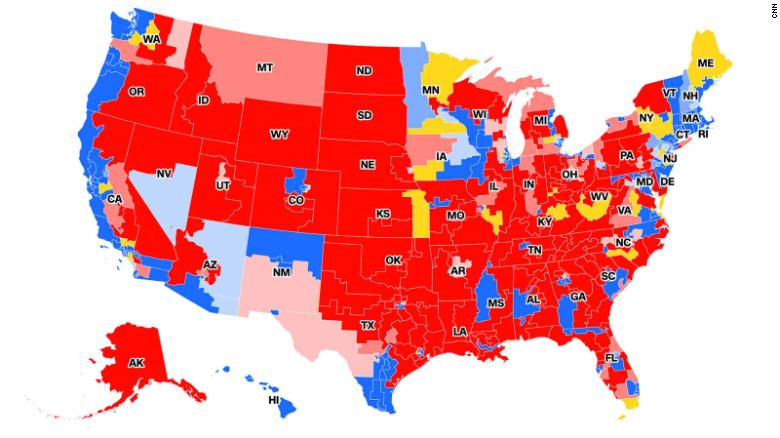There are seven races in the House left uncalled -- all are Republican-held seats;
Democrats lead in five of the seven. If they win all the races where their candidates are winning at the moment, Democrats will net 38 seats. If they lose them all -- which is very unlikely -- they will hold at a 33-seat gain.
In an
interview Wednesday with the conservative Daily Caller website, President Donald Trump insisted that by his aggressive last-minute campaigning across the country he had saved House Republicans from seat losses that could have numbered into the 70s. "I think I did very well," he concluded.
Not really, is the answer.
There's no question that Trump did not suffer the massive seat loss that his immediate predecessor -- Barack Obama -- did in his first midterm election in 2010. In that election, Republicans netted an astounding 63-seat gain, the largest since Democrats lost 72 House seats in the 1938 midterms.
But more broadly, the 33 seat loss (at least) by Republicans in 2018 places this election firmly in the upper echelon of House-seat losses by a president's party in modern midterms.
Since Watergate, the president's party has lost more than 33 seats three times: 2010 (63 seats), 1994 (54) and 1974 (48). In that same time frame, the president's party has lost fewer than 33 seats eight times: 2014 (13), 2006 (30), 2002 (president's party won eight seats), 1998 (president's party won five seats), 1990 (eight), 1986 (five), 1982 (26) and 1978 (15).
The Point: It's fair to say the 2018 election wasn't a complete and total disaster for Republicans, but it was far from a nothing burger either. If 1 is calm political waters and 10 is a tsunami, I think the 2018 election is rightly described between 7.5-8.5.
Read Thursday's full edition of The Point newsletter, and sign up to get future editions delivered to your inbox.



No comments:
Post a Comment